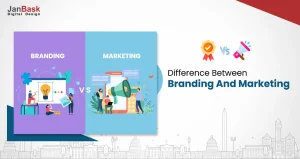
When it comes to your company's financial future, your marketing plan is a critical component. While not every marketing attempt you make will be a success, there are a number of successful techniques to push your company to the next level of growth.
The marketing program criteria for companies that have grown from a small-to-midsize business (SMB) to an enterprise level must also evolve accordingly. In order to become a successful enterprise firm, your organization must have an enterprise marketing strategy in place.
Fortunately, scaling up your marketing doesn't have to be difficult. You can design and expand your company's enterprise marketing plan using digital marketing service and a few easy marketing strategies and marketing automation approaches. As a marketer in a large company, your marketing plan is likely to be multifaceted and complex. The term "enterprise marketing" refers to all of a company's marketing efforts. There are a wide variety of ways in which companies can communicate with their customers, staff, and other stakeholders.
You may find yourself doing everything from the ground up, from product development to content marketing to social media. You'll typically find an enterprise marketer at the convergence of company strategy and tactical implementation. That's why IT executives, product designers, and other executive team members are often seen working together on enterprise marketing, even though their roles don't typically come under the usual marketing umbrella.
There are various parts of enterprise marketing, and this article aims to explain how they all work together.
The goal of enterprise marketing is to help companies grow and expand. In order to maintain an existing client base while also seeking the goal of rapid expansion, these actions are put into action. Integrated multi-channel strategies are used in an enterprise marketing plan to target and expand a company's niche audience outside of the company's internal marketing staff.
Companies often engage people beyond the marketing division with enterprise marketing initiatives, such as product developers and shareholders. This helps them discover new opportunities for growth both inside and externally.
Companies can take their marketing efforts to the next level by shifting their sales focus from retaining current customers to acquiring new ones.
Customer data is analyzed, and plans are put into action by enterprise marketing teams in order to meet corporate goals by generating value for all stakeholders, both internal and external. The role has changed over time from purely advertising-based to one that encompasses public relations, promoting sales, social media marketing, and content creation/distribution, among other activities.
When developing campaigns or programs like new product launches or partnerships, they take into account the effects their activities will have on staff and customers. With the ultimate goal of increasing sales, an enterprise marketing team employs a potent combination of marketing methods. Rather than relying on your marketing department alone, Enterprise Marketing makes use of a cross-functional team.
The difference between a small firm and an enterprise is that the latter is more complicated. A small-sized business (SMB) often employs a modest number of people, typically between 0-100. In addition, their IT department is smaller, and their annual income is lesser.
When it comes to multi-channel marketing for small firms, they are most often confined to social networking apps and email marketing and don't have access to the same marketing tools as their larger competitors.
More than 500 to 1000 professionals are employed by mid-market firms (MMs), which are larger than SMBs and generate more annual revenue than smaller businesses. When it comes to cross-platform marketing, MMs are more likely to have an expanded marketing program because of their higher yearly revenue, market impact, and access to marketing tools.

On the other hand, enterprise businesses are expected to be the largest across the board. Enterprise organizations with more than 1,000 workers and generating more than $1 billion in annual revenue have a wealth of resources and assets at their disposal to pursue exponential growth.
Billion-dollar sales usually mean more deep expertise, customer contact points, marketing personnel, and more difficulties in rapidly altering courses. However, when it comes to marketing, enterprise marketing is unique because it combines the power of the entire company to boost sales and draw in more customers. A strong enterprise marketing plan includes elements such as multi-channel marketing, brand awareness, and brand diversity.
Customers can be targeted across multiple marketing channels using cross-channel or multi-channel marketing. For instance, a coordinated campaign spanning social media, emails, landing pages, and mobile applications dramatically boosts the brand's visibility to customers.
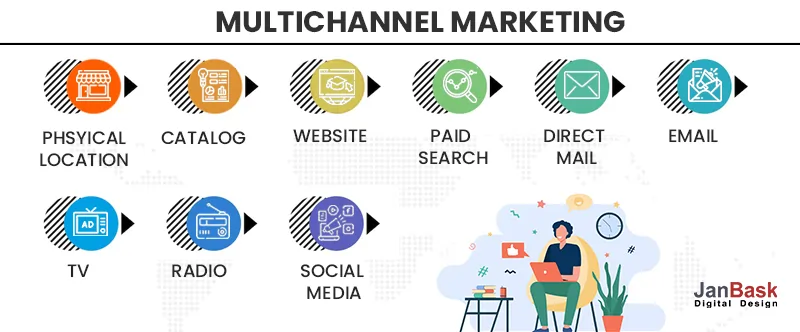
Unlike smaller marketing teams and startups, business marketers don't have to cope with the same budget constraints. A bottleneck results when appropriate testing isn't possible because of a small marketing team's funding. Businesses can immediately reach a large audience to validate assumptions because they have proven offerings, audiences, funnels, and other data.
Smaller businesses may be unable to afford to pay the higher costs associated with cross-channel campaign management than large enterprises. Of course, it goes without saying that the marketing funnel, copy, and creativity must all be in sync, but having a set budget is a huge advantage.
The more people know about your brand, the more likely they are to buy from you. The purpose of brand awareness in enterprise marketing is to grab the attention of both present and potential clients, just like in any other form of advertising.
The primary focus of a company's public relations activities should be on the brand's intended audience. Limiting your marketing efforts to a specific group of people may be counterproductive. Instead, consider your target audience as a beginning point that can be stretched to a greater reach as you experiment with messaging. In order to keep your brand relevant, you need to collaborate with influencers, roll out new initiatives, and keep up with online best practices.
When it comes to building brand awareness, social media should be at the top of the list for Enterprise Marketing. Consumer relationships can only be built by active participation in social media. Customers prefer human interactions over chatbots with personalized responses because they feel more connected to your brand.

Using retargeted adverts is another technique to increase your enterprise branding. This is a terrific approach to remind visitors who have previously visited your website or expressed an interest in your products and services of your brand's presence. In the end, you want to encourage visitors to return to your site. Advertising to users who have previously visited your website, searched for your items directly on a search engine, or opened an email from your brand, whether or not they are subscribed, is ideal for ad retargeting.
Looking to Grow Your Brand Online?

Here are some of the top techniques for enterprise marketing in several marketing domains:
In order to increase visibility and consumer involvement, social media marketing is the best option.

Although social networking is no longer as simple as it used to be, it still has its advantages. Determine which digital marketing channel is best for your business before you build an enterprise marketing strategy. Instead of solely promoting your products or services, you can create content that reflects your brand's values and personality.
In contrast to other commercial marketing platforms, social media marketing fosters client loyalty and trust. So if you want to get started with the right marketing strategies for enterprise, there are enterprise-level digital marketing services available in the market to help you build your social media campaign.
According to recent figures, more than 70% of organizations worldwide utilize content marketing.

There are many issues that can be answered through content marketing, but the focus should be on the creation and distribution of useful and relevant material.
If you want to increase your website traffic, you need to boost your company's online presence, which can be achieved through Enterprise SEO Services. The more individuals that visit your website, the more likely it is that you will be able to convert them into paying customers by offering them relevant items or services.
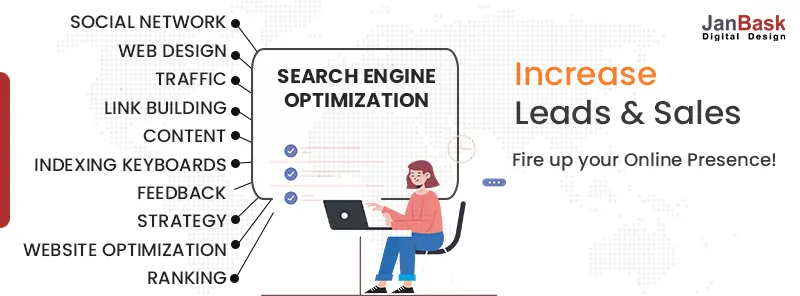
In order to compete in today's market, businesses must employ both on and off-page SEO strategies. Your website's on-page SEO includes keyword targeting, page speed optimization, and creating high-quality content. However, off-site SEO is the way to go if you're concerned about your website's search engine rankings and visibility. This strategy includes social media marketing, email marketing, and link building.
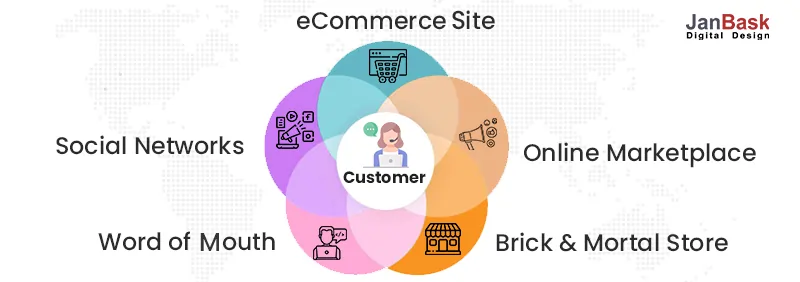
The modern customer is not confined to a single communication or interaction channel with brands, unlike the conventional customer. But unfortunately, even the most well-known firms cannot keep up with the ever-expanding number of marketing outlets.
Companies that have multiple distribution channels are more likely to be able to reach a larger audience. However, it's true that multi-channel marketing isn't always a smooth experience. As a result, in addition to multi-channel marketing, you also require omnichannel marketing.
In order to create consistent and seamless content experiences throughout the buying process, omnichannel marketing aligns with your cross-channel marketing activities. When it comes to customer satisfaction, 67% of consumers say that they will switch brands if they have a bad encounter with a company.
Having the correct content at the right time is critical to the success of an organization's omnichannel marketing strategy. Having a strong awareness of their client's demands is essential to this. Determine what platforms they prefer to purchase on, their purchasing habits, and how they connect with the business across various touchpoints.

With a proactive marketing strategy, marketing teams familiar with marketing techniques can overcome the challenges of transitioning to enterprise marketing.
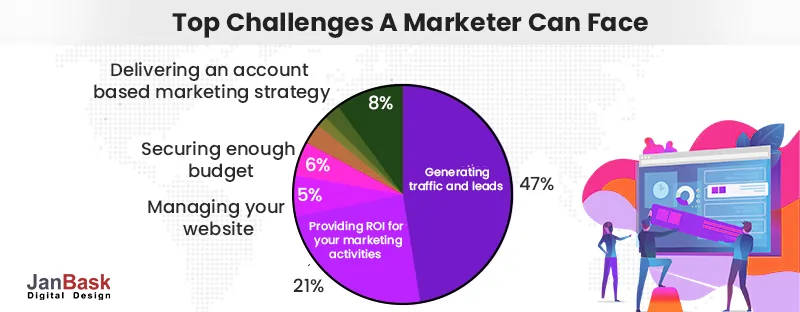
Scaling up is one of the first hurdles to overcome. Some aspects of your marketing program may be more difficult to handle when scaling up, even though there are ways to ease the scaling up internally, such as refocusing the focus of specific employees on different departments and projects.
This is a common problem in companies where the executive devises the marketing campaign goals and objectives. In some cases, the team is given the task of defining the objectives. However, it may be difficult for the team to come up with goals that align with the established objectives.
There are many moving parts to enterprise marketing, including inventory management, human resources management, accounting, etc. However, because they are new, it is likely that these organizations lack the funding necessary to achieve the desired results. In addition, many marketing teams lack experience in the field of corporate marketing.
Reworking the campaign's goals and objectives may be necessary if they aren't aligned with the campaign's goals and objectives. Some business leaders are open to new approaches, but others are risk-averse. In addition, due to bureaucracy, it may take weeks or even months for the team's recommendations to be approved.
Understanding how your business can continue to target specific customers and cultivate positive customer relationships while expanding at an exponential rate is the most common problem faced by enterprise businesses.
The term vendor management refers to internal operations that allow for the effective control of vendor costs and services. All of your company's vendor processes and procedures can be tracked and monitored in a single location using this service.
Tracking and monitoring vendor relationships can be overlooked by enterprise marketers who are just beginning to scale up their marketing efforts. However, your overall marketing strategy should not overlook this aspect, as it is a critical component in ensuring that all of your vendors can initiate and complete transactions.
In the same way, your company should closely monitor and manage how it operates. This process includes tracking your resources, materials for production, software systems, and customer transactions. Data from ERP systems are often the backbone of successful enterprise branding strategies. An ERP system eliminates the hassles of tracking down and compiling resource statistics on a regular basis, whether you're expanding your business or already have one in place.
Scaling up your company's marketing program is often plagued by the problem of having too many ideas. In addition, developing an enterprise marketing strategy will require the cooperation of all company departments, so you can expect a wide range of opinions and viewpoints to be expressed.
Because so many people are willing to share their thoughts on topics in which they lack expertise, it can be difficult to sort through them all.
Another problem may be marketing content that doesn't reflect your brand voice or other assets that are inconsistent. You should use a content collaboration tool if you want to avoid silos when scaling up to an enterprise marketing program. While working on your company's marketing strategy, you'll still be able to communicate with colleagues across departments because this method makes it easier to assign tasks to specific departments.
Overall, enterprise marketing should be more customer-centric because customers increasingly want to be involved in the purchasing process. Therefore, big brands should tailor their marketing strategies to the specific needs and preferences of their target audience in order to generate more sales leads. This way, brands will be able to stand out in an increasingly crowded marketplace exponentially. Hiring an enterprise marketing company is another way of overcoming these challenges.
As mentioned above, these pitfalls can be avoided by using essential planning and software; however, there are specific components that ensure your business marketing plan runs smoothly. When setting up your enterprise marketing program, these should not be overlooked, as you'll need them in the future.
Your company's broad, multi-channel enterprise marketing plan should also include specific strategies to help your company get customers again and again.
Defining your corporate marketing strategy is a prerequisite to moving forward with growth initiatives. Your company's endpoints, which define success, and quantifiable statistics that represent such achievable growth will be determined by these goals and objectives, which will drive your enterprise marketing strategy.
When developing an enterprise marketing strategy, it can be difficult to figure out exactly what these goals and objectives are. In some cases, your company's shareholders may choose one of those, and you'll have to decide how to implement their decision. To move forward, it is necessary to identify and establish this component of the business due to the cooperative nature of enterprise marketing.
You must have a specific audience in mind when creating a marketing campaign. An enterprise has a large and diverse customer base, but in order for your brand and content to have a distinct personality, you still need strong character traits. It's not going to resonate as well as some people think if you don't know who your ideal customer is.
If you're doing digital marketing, it may make sense to target a variety of different types of people, but your goal should be to find a specific type of customer to write to. You should cater to those who will be able to relate to the voice, appearance, and behavior of your brand. With this clearly defined brand persona, it is possible to establish a more personal connection with the target audience that your products and services are aimed at.
Once you've determined your ideal customers, you'll need to figure out how to communicate with them. Creating a consistent brand voice is the best way to do this. Think of it as a style guide for all of your content. Regardless of the medium, you must maintain a consistent tone of voice and demeanor in all your social media posts, emails, and product descriptions.
In order to find your company's unique brand voice, there are a number of approaches you can take. First, decide on your industry, your competitors, and the ways in which you are unique within it. Next, choose which of your company's assets to emphasize in your writing. Finally, you should know who you're trying to reach and what you're trying to say to get the desired results.
You can use inbound marketing to grow your business by attracting new customers to your website or a third-party site that sells your products. After all, it's designed to entice the reader to click and read by delivering a combination of entertainment and educational value.
Businesses have found that inbound marketing works well because it brings customers to them, which helps them grow at an exponential rate. In addition, it's possible to attract new customers to your brand by creating content tailored to their specific needs. This simple method for generating organic leads allows businesses to effectively scale their operations by utilizing current and ideal customers.
Marketing uses lead scoring to rank potential customers based on how likely they are to become a client or a customer. It's a matter of looking at the sales funnel and figuring out which prospects are the furthest along and, therefore, the most likely to convert into customers. The best leads can be identified through a customer relationship management (CRM) platform, allowing marketers to focus their efforts on the most important members of their audience.
Enterprise businesses can greatly benefit from marketing automation tools that automatically score leads while nurturing a specific lead relationship. Marketers benefit greatly from this simplification, which also provides clarity for large corporations with large audiences.
It's easy to boost your enterprise business's conversion rates by increasing brand awareness. Brand awareness, like finding customers through your niche and brand voice, is an additional benefit of determining how your company can best attract both current and potential customers.
It's okay to experiment with different types of content to see how current and potential customers react and if and how they engage with your content, even if your company has an established brand voice. If you're using social media to connect with your customers, it's now easier than ever for businesses to build relationships with them. Consumers will be able to connect with your brand more easily as a result of this interaction.
For as long as we can remember, word of mouth marketing (WOMM) has been around — someone who likes a company's product or service recommends it to others. It is one of the most effective forms of marketing. According to 74 percent of consumers, word of mouth was the most important factor in their purchasing decisions.
WOMM is most effective when you narrow in on your target audience and communicate with them directly. This is the exact opposite of someone discovering your brand by clicking on an ad or using a search engine such as Google. Nowadays, one of the most common ways for businesses to achieve WOMM is by using social media sites like Facebook and Twitter. Digital platforms have made it easier than ever to reach a wide audience, whether you're targeting a specific niche or the entire industry at large.
Decoupling a website's ecommerce functionality from its content management system (CMS) makes it possible for developers to use the frontend technology of their choice to deliver high-quality content experiences to site visitors.
For enterprise marketing programs, CMS enables them to maximize the full potential of their businesses' marketing strategies. Among the newly acquired skills are the following:
Scaling your website as your business grows will ensure that it can handle the increased traffic surges that come from more leads and customers.
Marketing resources that are easy to locate and manage are essential if you want to get the most out of your company's marketing efforts. There are platforms designed to ensure you have the technology, workspace, and freedom to create, manage, engage, and strategize your business. In addition, your entire company can work together on your enterprise marketing strategy, creating an essential hub from which your program can be effectively managed.
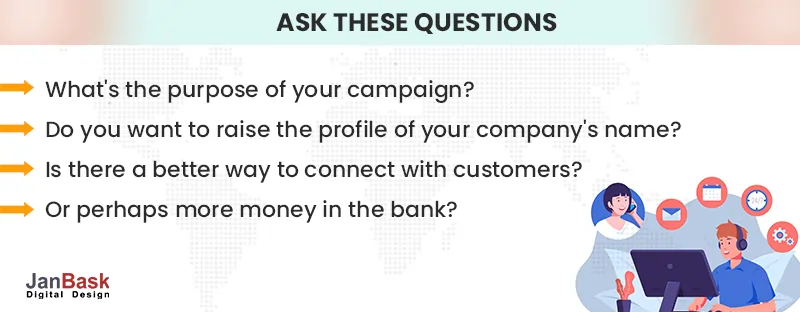
The most important step in creating a successful marketing campaign for your business is to identify your goals and objectives. However, there is a big difference between goals and objectives, despite the fact that they are often used interchangeably.
All-inclusive outcomes are what we mean by goals. They help you focus on your marketing strategies for the enterprise. However, objectives outline specific, measurable steps that the team must take to accomplish their goals. Therefore, it is ideal if the objectives and goals are clearly stated.
Exactly to whom are you targeting your company's marketing efforts? Creating a buyer persona can help you tailor your campaign to the needs of your target audience. The buyer persona includes information about your customers:
A business may have a wide variety of target customers or market segments to choose from, depending on the products and services it provides. Creating multiple buyer personas and tailoring your company's marketing campaign would be necessary in this case.
To remain flexible, an organization's definitions of an ideal customer should be open to revision and improvement as the business expands.
The next step in launching an enterprise marketing campaign is to come up with a distinct message. By doing this, you can maintain unified brand identity across all of your marketing channels. However, you should keep the message focused on the buyer's persona rather than focusing on your own goals and objectives.
There are a lot of similarities between ERP systems and Enterprise Management Systems (EMS) or simply Enterprise Systems. CRM, Human Resource Management (HRM), accounting, and supply chain management are among the many functions that most EMS systems handle. EMS systems are ideal for large organizations. However, in order to implement these systems, small businesses might find it difficult because of the costs and the complex IT infrastructure required.
Before choosing an EMS software, consider the following features:
If your company's customer base is large enough, spreadsheets are probably no longer sufficient. In order to keep track of customer interactions, businesses use CRM software. Customers' information, such as their email addresses, phone numbers, location, social media profiles, and so on, can be stored in a CRM system. This kind of data helps you track the evolution of your business's relationship with your clients.
An effective EMS system must be compatible with current processes and infrastructure in order to get the most out of it. Despite the promise of standalone solutions that can be integrated with existing systems, nothing beats the seamlessness of application suites meant to work together.
It is possible to perform data-driven tasks, as well as analyze and monitor processes, through a single, integrated platform. In essence, integration improves communication between teams, which reduces the risk of communication discrepancies..
An effective EMS system should be able to track everything all the way from the raw materials to the finished product. It should also be able to keep track of production and sales data, among other things.
Your EMS must be easy to optimize, despite its complexity, in order to reduce the likelihood of human error. The scope of localization goes far beyond simply translating the interface. Despite its importance, a good EMS software must be able to adapt to your organization's specific needs and preferences.
If you plan to expand your business to a new region, localization will help you adapt to the culture, language, and regulations of the new location.
It's only logical to make use of the data that an EMS is supposed to collect and process from various departments within the company. You can use data analysis to discover patterns and trends in your operations. You can use this information to determine which tasks are most effective and to forecast the future of your business.
An EMS should examine the company's data, including sales, production, and customer information. It should, for example, be able to forecast demand, develop a budget, and evaluate the effectiveness of the company's marketing strategies.
Enterprise marketing should be more customer-centric because customers increasingly want to be involved in the purchasing process. Therefore, big brands should tailor their marketing strategies to the specific needs and preferences of their target audience in order to generate more sales leads. As a result, brands will be able to stand out in an increasingly crowded marketplace.
The sooner you start planning for an enterprise marketing transition, the better. While scaling up your marketing efforts will inevitably present difficulties, there are notable ways in which you can successfully make the shift. You can get in touch with us if you'd like to learn more about our enterprise marketing services and how we can help your company as it moves into the realm of enterprise business marketing.

K
Great marketing guide.
P
Amazing strategies.
O
You make connecting with the audiences so easy.
B
Thanks for sharing this guide.
L
What impressed me the most is how you easily explained everything about enterprise marketing.
J
Thanks you found it insightful!, stay updated for more such blogs!